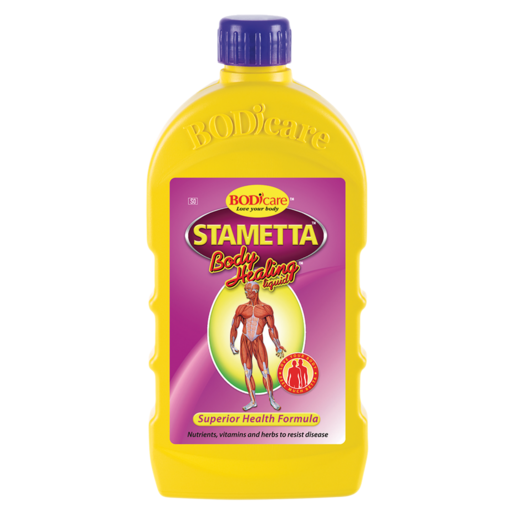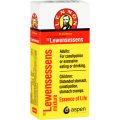What is Stameta?
Stametta is a South African herbal liquid medicine sold off the counters in shops and pharmacies in the country. It is designed to assist in promoting or supporting the functions of the stomach and intestines and for short-term use in cases of occasional constipation. Stametta is also believed to strengthen the immune system and relieve various conditions. These include menstruation, lower back and joint pain, fatigue, gum disorders, sexual performance, flatulence, digestive problems and constipation. It can also strengthen bones and muscle tissue.
Stametta has aloe vera as one of the ingredients. People have used it for thousands of years for healing and softening the skin. Aloe has also long been a folk treatment for many maladies, including constipation and skin disorders. Modern-day research into aloe vera’s benefits is mixed, with some evidence showing it can cause cancer in lab animals. Each 500 ml of Stametta contains: Aloe 1,667 g; Ascorbic Acid (Vitamin C) 1,667 g; Aniseed Oil (Pimpinella Ansium) 0.817 g; Magenesium Sulphate 71,667 g; Preservative: Nipastat 0,02% m/v.
A growing number of the world’s population are turning to plant derived remedies and medicines for many reasons, which include their low cost compared to western pharmaceuticals and seeking natural alternatives which are widely believed to have fewer side effects.
How to use Stametta
- Shake bottle well before use.
- Using a measuring tool, take 50-100ml three to four times per week.
- Drink water after taking the liquid.
If your condition does not improve within three weeks, it is recommended that you discuss the problem with your healthcare practitioner.
Is it safe to drink Stameta while breastfeeding?
No, it is not safe to drink stameta while breastfeeding. In addition, this product is not to be used by children under the age of 14 years and those suffering from low blood pressure and diarrhea.
How long does it take for Stameta to Work?
For constipation, the laxative effect of Stametta can make you poop within 24 hours if you haven’t been able to. But it can cause serious stomach cramps, diarrhea, and other unpleasant symptoms, and the regulators says there isn’t enough research to be sure it’s safe.
Can I use Stameta for weight loss?
Yes, some research shows that aloe vera based products like stameta could boost your metabolism, increasing the number of calories you burn throughout the day to promote weight loss. In one 90-day study, administering dried aloe vera gel to rats on a high fat diet reduced body fat accumulation by increasing the number of calories they burned. Other animal research has shown that aloe vera could affect the metabolism of fat and sugar in the body while preventing the accumulation of belly fat.
What are the possible side effects of Stametta?
Common side effects of Stametta can include:
- blood sugar (hypoglycemia)
- Burning and itching of the skin (infrequent)
- Stomach pain and cramps (high doses)
- Diarrhea, kidney problems, blood in the urine, low potassium, muscle weakness, weight loss, and heart disturbances (long-term use at high doses)
- Liver problems (rare)
This document does not contain all possible side effects and others may occur. Check with your physician for additional information about side effects.
Can Stametta interact with your medication?
Before taking Stametta discuss with your doctor. If your doctor has directed you to use this medication, your doctor or pharmacist may already be aware of any possible drug interactions and may be monitoring you for them. Do not start, stop, or change the dosage of any medicine before checking with your doctor, health care provider or pharmacist first.
Aloe, the main ingredient in Stametta has no known severe, serious, moderate, or mild interactions with other drugs.
Speak with your doctor if you intend to use Stametta and take any of the following drugs or supplements:
- Diabetes medications, including insulin
- Diuretics (“water pills”) like Lasix (furosemide)
- Heart rhythm medications like digoxin
- Laxatives and stool softeners
- Licorice root
- Oral or injectable steroids
- Nonsteroidal anti-inflammatory drugs (NSAIDs) like aspirin, Advil (ibuprofen), or Celebrex (celecoxib)
Oftentimes, separating drug doses by two to four hours is all that is needed to avoid an interaction. At others, a dose adjustment or drug substitution may be required.
This information does not contain all possible interactions or adverse effects. Therefore, before using this product, tell your doctor or pharmacist of all the products you use. Keep a list of all your medications with you, and share this information with your doctor and pharmacist. Check with your health care professional or doctor for additional medical advice, or if you have health questions, concerns or for more information about this medicine. Also Read: Is It Safe to Take Napamol While Pregnant






